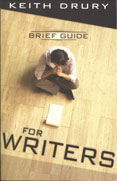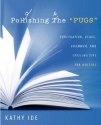This article was offered by Gwen Plauche through Faithwriters.com’s free article service.
A man was preparing to go on an extended trip. He sent a text to three of his employees to come to his office.
To the first employee arriving in his office he handed an agreement from a publisher to write a series of books. To the next employee, he gave a contract to supply a monthly column and to the third employee arriving in his office he assigned the duty to keep his blog updated.
The first employee excitedly worked daily on the project. Unfortunately the book contract fell through. However, his energy for the project was contagious and after many submissions, a new deal was inked. The new publisher also asked for an additional series with a generous advance attached.
The second employee also went right to work writing the column with attention to detail. Ahead of schedule, he decided to carefully review the contract and found that he was able to sell reprinted articles to other publications. He invested many hours researching possibilities and found that many of the newer publications did not pay for published submissions. Not one to get discouraged, he continued to submit appropriately chosen articles with full passion for the project and carefully followed up on all the submissions. One of the new publishers was so pleased with the reader response to the monthly column that they proposed an anthology that would be published by year end.
The third employee looked at the blog with disdain. I really should be writing a book! Why am I wasting my time blogging for my absentee boss? He reviewed the previously posts on the blog and matched the word count and frequency as he blogged. He was surprised how easy of a task it turned out to be and used the rest of his time on his personal business. Well, I have completed my assignment!
At the end of his extended absence, the boss returned and called the three employees to his office to recap the events of the past year.
True to form, the first employee to his office was the one who had the book assignment. As he entered the office, the boss embraced him and said, “I do not even need to ask how you did. I have been following your tweets and Facebook posts. Sit down and tell me all about it! I am so proud of you; you have represented me well!”
About then, the second employee joined them in the office. “Welcome,” the boss said as he warmly greeted his entrance. “Look what I picked up at the airport during my last layover as he showcased the newly published anthology of the articles published in his absence. You are a genius; great work! Just think where we can take this in the next year!”
The third employee slipped in the room and took a seat across the office, hoping to be unnoticed, but all eyes were on him. The employee squirmed. Silence in return. The boss opened his laptop and logged in. Typing his blog address he began to speak. “Well, I have been watching the blog.” No response from the employee. The boss continued, “And I have to say, it was pretty boring.”
The employee sat up a bit straighter and answered, “But sir, I know you are a perfectionist and well known in the publishing world. I just did not want to do anything that was not up to your standards,” he said as he slumped back down in the chair.
“So you basically did nothing?”
“Not exactly, sir. I continued your blog as instructed. I even matched your previous word count and tried to keep the topics very similar.”
“I never imagined you to be so lazy! The very least you could do is use your own creativity and stretch a little bit. I gave you a vehicle that would get your writing out there, but you did not even use it to grow. You could have networked with other writers and at least entered a writing contest or two. I hate to tell you this, but I will not be able to trust you with this again. In fact, I will gladly assign this to my first employee who ran circles around you during this same time, yet accomplished ten times as much. I will accept from you your immediate resignation.”
“To those who use well what they are given, even more will be given, and they will have an abundance. But from those who do nothing, even what little they have will be taken away” Matthew 25:29 (NLT).
Copyright information:
Written by Gwen Plauche. Blog: http://www.GwenPlauche.com. Copyright 2011, Gwen Plauche. You have permission to reprint in its entirety only provided the copyright notice remains part of the reprint and transmission. All other rights reserved.











